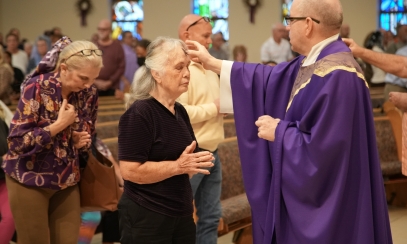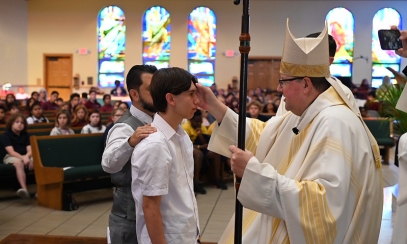
The Church Can Help With the Hard Work of Forgiveness
When I was in fifth grade I cheated on a spelling test. I knew it was wrong but the promise of a perfect score and the corresponding class-wide treat that came with it proved too much of a temptation and I fell. However, the ice-cream prize quickly turned sour as my conscience erupted and holy conviction fell upon me. I knew I had to come clean and tell the truth. I told my mom what happened, and she insisted I apologize to my teacher and, most importantly, ask for forgiveness. Admitting I had messed up wasn’t too hard, but asking and waiting to be forgiven? That was tough.
When I was in fifth grade I cheated on a spelling test. I knew it was wrong but the promise of a perfect score and the corresponding class-wide treat that came with it proved too much of a temptation and I fell. However, the ice-cream prize quickly turned sour as my conscience erupted and holy conviction fell upon me. I knew I had to come clean and tell the truth. I told my mom what happened, and she insisted I apologize to my teacher and, most importantly, ask for forgiveness. Admitting I had messed up wasn’t too hard, but asking and waiting to be forgiven? That was tough.
Repentance, mercy, judgment and forgiveness are consistent themes throughout Scripture, and Jesus highlights the importance of this process multiple times. He instructs his disciples to forgive not just seven times but seventy-seven times. He gives the apostles the power to forgive sins. He forgives the sins of the paralytic, and he teaches us, in the Our Father, to ask for the same measure of forgiveness we give to others. Some of these examples teach us the need to extend forgiveness, and some demonstrate our own need to be forgiven.
Forgiveness is not optional in the life of a disciple, but that doesn’t mean it’s easy. The Lord knows this and therefore provides, most perfectly, through the sacrament of confession, a consistent and tangible vehicle for us to be truly forgiven of our sins. Additionally, when we humbly ask for the Lord’s help to forgive others and then choose to forgive them, real freedom can and will emerge.
We are called to draw from the grace of the sacrament to aid and heal our relationships, memories and damaging situations.
Instead of holding on to past grievances, wrongs and sinful behavior, with divine assistance, we can place those things at the foot of the cross as an intentional act of forgiveness.
In closing, I must reference arguably the most significant moment of forgiveness in the New Testament. Jesus, dying on the cross, the completely innocent victim, forgives his executioners. Through the Holy Spirit, we have the power to do the same, even if it’s awkward, painful and requires a tearful conversation in the back of a fifth grade classroom.
Forgiveness can be complicated and messy and I recommend reading Be Healed by Bob Schuchts. This provides a much more robust explanation as to the absolute importance of forgiveness if we are to experience the freedom to which we are called.
Pete Burak is the director of i.d.9:16, the young adult outreach of Renewal Ministries. He has a master’s degree in theology and is a frequent speaker on evangelization and discipleship.



